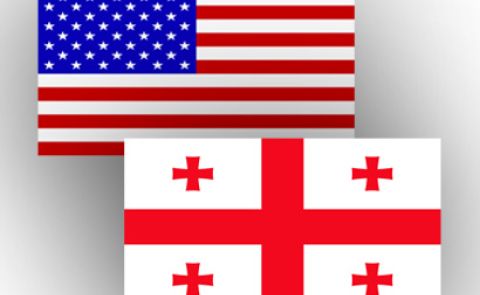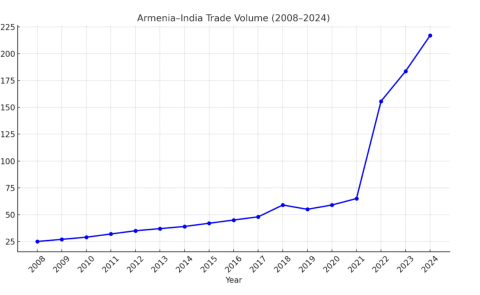
Social media trolls’ efforts on influencing political life. An Armenian experience.

Social networks became the primary means of communication of the Armenian public since the 2018 Velvet Revolution. Throughout the street protests, it was a tool for motivating people. Later, the new authorities, led by Nikol Pashinyan, chose Facebook to share official information. While the previous authorities’ communication strategies were more traditional in their approach, using official websites or sharing messages through spokespeople, this has been widely replaced by Facebook posts and live broadcasts since May 2018.
Along with it, governmental opposition parties and non-governmental political forces also started to pay more attention to social media. Now, it is one of the most-used platforms for communication and propaganda for both sides.
In the meantime, parties accuse each other of spreading fake news, manipulating people, and trolling via social networks for various reasons.
Political trolling spread by fake and real accounts or by motivated groups, in different forms, became one of the crucial problems for both media and politics.
Today, amid the coronavirus pandemic and the state of emergency declared on March 16, the Armenian authorities took concrete steps to fight this problem. However, fakes are spreading widely and without obstacles. Experts have various views on preventing the spread of fake news by trolls. But they apparently think that political trolls and fakes will not disappear by themselves. Yet, an effective “cure” would require long time.
Social media trolling in Armenia
Trolls are not new in the Armenian internet sphere. Their orientation and activities are diverse and depend on the actual context of a certain period. But trolls have principal purposes like influencing and manipulating public opinion as well as deceiving regarding a certain topic. Gegham Vardanyan, editor-in-chief of Media.am, says that the presence of trolls in social networks and their motivations are obvious, however, except in some cases, there is not enough evidence on the financial and political motivation of these groups.
There are mutual accusations to and from the authorities for using fake accounts to manipulate public opinion. Before the revolution, the Government’s Public Relations and Information Centre (SNCO) was particularly blamed for being a “fake factory” working on the authority’s reputation. This centre is presently ruling a fact-checking website to verify information about the Government’s work. But the rumors of the institution using fake accounts are still circulating. Ani Grigoryan, editor-in-chief of the Fact Investigation Platform (FIP.am) mentions that there is still no evidence to confirm or deny this.
There are similar rumors about the opposition. In August 2018, there were reports that the well-known Armenian telegram
Telegram-channel “Baghramyan26” was offered to serve Armenia’s second president Robert Kocharyan and publish posts in his favor. Gegham Vardanyan mentions that there are many unconfirmed accusations against Kocharyan’s supporters for having “troll factories” as well. Other political parties and influential figures like third president Serzh Sargsyan’s son-in-law and ex-ambassador to the Vatican Mikayel Minasyan are also being blamed for trolling and using fake or real user-accounts to attain political goals. “If there is a political struggle, then there will be a market for such services and, of course, customers to consume it”, - says Vardanyan.
Over the last few years, there have been several cases of fake topics or theories being pushed repeatedly. The reasons for that are case-specific and include distracting attention from an important issue or making certain topics more prominent. Some of these trolls target Armenia’s internal and foreign affairs. One profound example is the Nagorno-Karabakh conflict and particularly the myth that the new government is about to hand over the territory.
Other rumors and conspiracy theories relate to sensitive topics. The Open Society Foundations’ functions, the ratification of international conventions, or even the public discussions of any question related to sexual education or the LGBTQ community’s rights makes the social media a fitting place for those fake accounts’ “struggle” against such efforts.
As the number of social media users is growing dramatically, many users are becoming trolls without even noticing. The Eurasian Partnership Foundation’s director, analyst Gevorg Ter-Gabrielyan, who researches trolling tendencies in Armenia, marks that the behavior of “useful idiots” is an issue of lacking media literacy and critical thinking skills. “The key goal of the troll-army is to make money, and their sponsors' aim to keep power, gain it, return to power, or to serve a certain power. Meanwhile, the purpose of “useful idiots” is self-affirmation, having fun, attracting attention, or trying the limits of freedom of speech”, - explained Ter-Gabrielyan.
Trying to set the political agenda
The influence of trolls on the political life in Armenia is controversial. Gegham Vardanyan says that, in general, trolls are supporting forces for influencers, the groups or people who have a high reputation, or play a dominant role in the country’s decision-making processes. They have other and more useful methods for reaching their goals, and the trolls are coming to help maintain or gain success. Though, trolls are only present in social networks, and due to that, influencing political life is quite difficult. Ani Grigoryan marks that fake users’ goal is “setting the political agenda by influencing public opinion because the first cannot be done directly by trollers”.
Some monitoring groups studied the fake accounts used by political parties to support candidates to gather votes and increase their reputation. But as it has been mentioned above, there is only one case in which an organized group of fake users supporting one of the political parties has been exposed. In late fall 2018, before the parliamentary elections, a journalist was hired by the Prosperous Armenia Party to manage fake accounts. She claimed that the party had about 400 fake accounts to support the candidates during upcoming future elections.
A huge number of fake accounts were allegedly supporting other political parties during the same election.
In another case, inauthentic Facebook accounts were working to damage Health Minister Arsen Torosyan’s reputation. There were over 300 fake accounts and several media outlets spreading misinformation and hate speech against him, fact-checking journalists reported. The campaign was so strong that Torosyan had to set up a press conference to clarify the fake news about his military service and his health condition that were spread in the press and social media.
These activities sometimes cross the line of freedom of speech, spreading hate speech and threats. Thus, the struggle against it has become essential.
Political fakes and the means for competition
As mentioned above, fighting fake news and trolling is a crucial problem. Ani Grigoryan marks that the fact-checking organizations do not have the popularity to reach everyone and raise mass awareness at the moment. “The problem needs to be solved through collaboration. First, there is an essential need to raise society’s media literacy level. Then, journalists must be more professional and careful․ Finally, the fact-checking organizations must definitely try to make verified information easily accessible to the masses and work independently”,- says the editor.
In particular cases, the Armenian government is committing to fight fake news, malign-users, and trolls. It is about the situations when the content may cause threats to national security or when it constitutes an apparent criminal case. In January 2020, the Armenian National Security Service (NSS) revealed an inauthentic Facebook account publishing information that the Armenian Prime Minister Nikol Pashinyan had allegedly congratulated the US President on an operation against a high-ranking Iranian soldier. A criminal case has been initiated by the NSS. The user of the fake Facebook page was detained. The NSS also revealed a user carrying out Azerbaijani propaganda, and about a threatening Facebook page called “Dukhov Hayastan”. Shushan Doydoyan, The founder of the NGO Freedom of Information Center Armenia does not agree that intervening in the freedom of speech is justified. “Any kind of pressure by authorities against the media is unacceptable”, - Doyodoyan says.
Gegham Vardanyan thinks that if there is a criminal case or an apparent crime, then the intervention of law enforcement bodies is adequate. “But anyway, the NSS is not a proper body to deal with fake news. Another law enforcement body should deal with this”, - Vardanyan says.
Censorship is a failed model for combating fake news
Due to the state of emergency declared on March 16, Censorship was announced at the state level. Though, after a week of criticism and discussions with experts, authorities have changed and softened the rules. Later, the censorship policy was revoked altogether. Shushan Doydoyan says that the authorities had realized the nonsensical nature of their decision, but the softened rules were more acceptable expert thinks. “Punishment is not always the most effective way. In this case, there is also the problem of having the opposite effect. Instead, the authorities should raise mass awareness and come up with a well-organized communication approach”.
There were almost 30 cases in which the government urged removing the content from websites or social networks. Censorship, however, could not stop the flow of misinformation and conspiracy theories on the internet. Several circles on Facebook spread unverified information and conspiracy theories about the coronavirus pandemic and its “political” aspects. Official information is often insufficient to stop this. Accordingly, the political trolls which metastasized before the coronavirus pandemics, are now rapidly spreading in the context of the current situation.
Contributed by Ani Avetisyan.
See Also


Armenia and India: Building New Bridges in Trade and Strategy

Between Tehran and Tel Aviv: Azerbaijan’s Neutrality Dilemma Amid Rising U.S.-Israel Tensions with Iran

From Neorealism to Neoliberalism: Armenia’s Strategic Pivot in Foreign Policy After the Nagorno-Karabakh Conflict

Georgia and Russia: New Turn in Bilateral Relations

